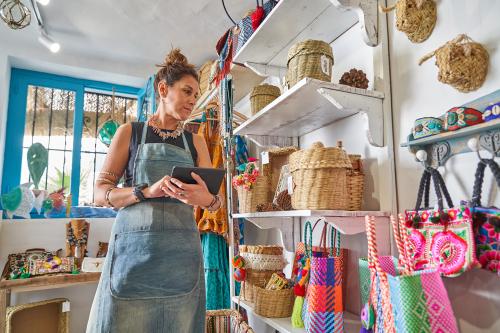Earlier this week, online marketplace Etsy announced plans to launch Etsy Manufacturing, a new initiative that will help Etsy designers grow their businesses by partnering with manufacturers in the U.S. and Canada.
At first glance, Etsy Manufacturing seems to be a bit of a departure from the company’s longstanding emphasis on maker-made goods. But given the rapid growth Etsy has seen in recent years and the success of retail and wholesale vendors on the site, this move makes good sense. Access to manufacturing will help Etsy sellers expand their businesses and keep up with demand while also providing new market opportunities for small and medium-sized enterprises (SMEs) engaged in manufacturing in the U.S.
SMEs often struggle with limited resources, risk aversion, and other factors that hamper their ability to seek out and transition to new markets. Etsy’s manufacturing marketplace can help SMEs surmount these challenges by providing access to a much larger pool of potential customers.
At present, Etsy does not plan to vet manufacturers, which means that the burden of due diligence will fall on designers, many of whom are new to manufacturing. In the coming months, Etsy may want to consider how a certification process like that offered by Dragon Innovation could help Etsy sellers navigate the move to manufacturing more successfully.
In addition, Etsy could explore opportunities for engaging with the Urban Manufacturing Alliance (UMA), a collaborative effort that brings together stakeholders from the private, public, and nonprofit sectors in order to “grow urban manufacturing, create living wage jobs, and catalyze sustainable local economies.” An Etsy-UMA alliance would further the UMA’s goals while also letting Etsy realize its desire to help sellers “create direct, trusting relationships with production partners who share their values.”
Etsy’s foray into manufacturing demonstrates an awareness of its community’s evolving needs. This and other efforts to improve the connections between product designers and U.S. manufacturers can help strengthen the nation’s manufacturing base, encourage innovation in products and production processes, and ultimately foster more sustainable growth for America’s metropolitan economies.
The Brookings Institution is committed to quality, independence, and impact.
We are supported by a diverse array of funders. In line with our values and policies, each Brookings publication represents the sole views of its author(s).



Commentary
How Etsy can strengthen America’s small-scale manufacturing sector
September 21, 2015